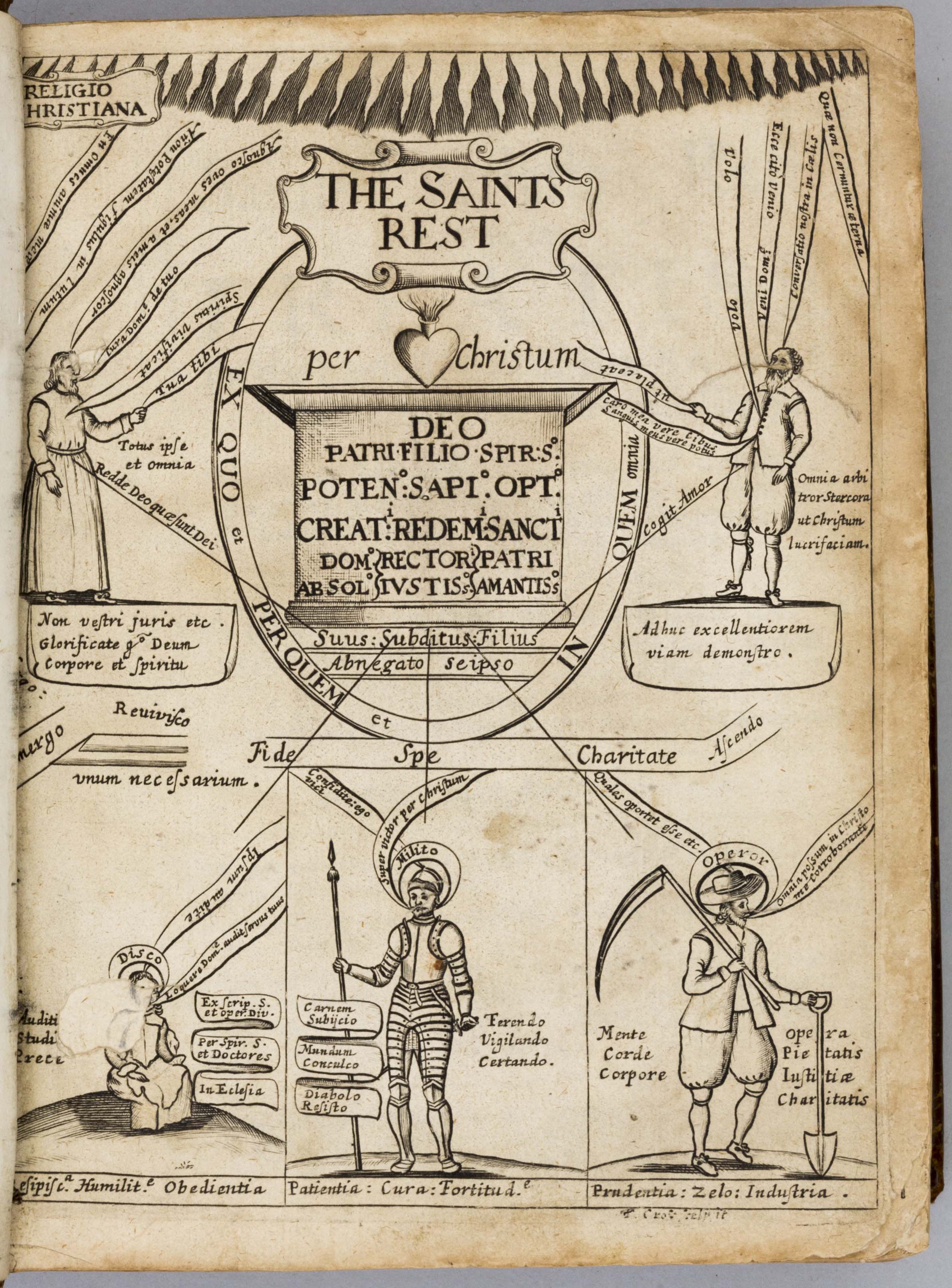
Richard Baxter
Eighth edition
London: T. Underhill and F. Tyton, 1659
[Rare] G8.61 [Baxter]
The ejected minister and prolific writer Richard Baxter (1615-1691) provides a leading example of Puritan use of the printing press, supplementing John Foxe’s establishmentarian expression in the 1570s of the power of the printing press to spread ideas. Baxter had become one of the most learned seventeenth-century divines through omnivorous personal reading, and wrote of print in his Christian Directory (1673): ‘The Writings of Divines are nothing less else but a preaching the Gospel to the eye, as the voice preacheth it to the ear. Vocal preaching hath the preheminence [sic] in moving the affections … But … you may read an able Preacher when you have but a mean one to hear. Every Congregation cannot hear the most judicious or powerful Preachers: but every single person may read the[ir] Books … Preachers may be silenced or banished, when Books may be at hand …’ Baxter classified his publications both by type and by potential readership, such as spiritual condition or level of education. He regarded The Saints' Everlasting Rest, his most popular work, as being for all sorts of people, but being especially useful for students. The book was to join the canon of devotional literature.